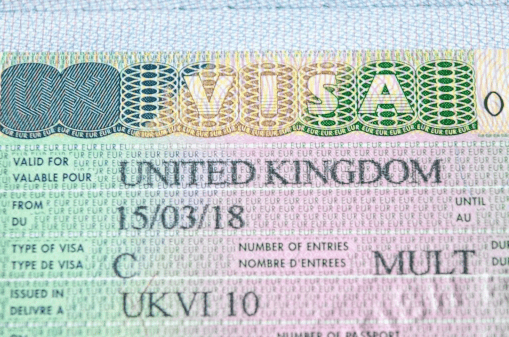In a significant policy shift, the UK government has announced that certain migrants will soon need to demonstrate English proficiency at an A-level standard if they wish to work in the country.
Effective from 8 January 2026, the new regulations will affect applicants for Skilled Worker, Scale-Up, and High Potential Individual (HPI) visas, part of a wider immigration crackdown aimed at cutting numbers and promoting integration.
“If you come to this country, you must learn our language and play your part,” said Home Secretary Shabana Mahmood.
She added, “This country has always welcomed those who come to this country and contribute. But it is unacceptable for migrants to come here without learning our language, unable to contribute to our national life.”
Stricter Tests and Higher Standards
Under the new system, visa applicants must pass in-person assessments covering speaking, listening, reading, and writing, conducted by Home Office-approved providers.
Currently, most applicants are required to meet a B1 English level, which aligns with GCSE standards. But from 2026, this will be raised to B2, equivalent to A-level English, a significantly higher benchmark.
From 2026, securing a skilled job in the UK won’t just be about qualifications; strong English skills will be essential. The aim? A better-integrated and more self-sufficient migrant workforce.
Visa Categories Affected
- Skilled Worker Visa: Requires employment with a government-approved UK employer, earning £41,700 or more (or the industry’s going rate).
- Scale-Up Visa: Targeted at migrants working for rapidly growing UK companies.
- High Potential Individual Visa: For those who graduated from a top global university in the past five years.
According to the British Council, those at B2 level can “understand the main ideas of complex texts” and express themselves “fluently and spontaneously.” They’re also expected to write “clear, detailed text” and explain complex ideas effectively.
White Paper: A Wider Clampdown on Migration
These English language reforms are part of broader proposals set out in the government’s immigration white paper, published in May. Prime Minister Rishi Sunak previously said the new approach would make the system “controlled, selective and fair.”
The Home Office estimates these measures could cut annual migration by 100,000. In 2024, net migration dropped to 431,000, almost half of the 2023 figure, a record 906,000.

Divided Opinions on the New Standards
While some welcome the tougher rules as a push toward integration, others are critical.
Dr Madeleine Sumption, Director of the Migration Observatory at the University of Oxford, pointed out the real-world trade-off: “There’s a balance between ensuring migrants speak good English and enabling employers to recruit workers who bring economic value.”
She warned the policy may hit hardest in middle-skilled sectors, such as manual or technical jobs, where strong English isn’t always essential.
Immigration lawyer Afsana Akhtar went a step further, calling the move “unfair.”
“Even many people in the UK probably wouldn’t be able to pass an English A-level. This would rule out even skilled workers who want to come and contribute to our British economy.”
She argued that GCSE-level English (B1) is sufficient to begin with and that language naturally improves through day-to-day life and integration.
Other Major Immigration Changes
The white paper outlines several additional reforms:
- Post-Study Work Rights: From January 2027, international graduates will have 18 months (down from two years) to secure a job in the UK.
- Student Financial Requirements: Raised to £1,171/month (outside London) for nine months, up from £1,136.
- Global Talent Visa Expansion: Now includes winners of more elite awards across tech, arts, and academia.
- Visa Sponsorship Fees:
Organisation Type New Annual Charge Previous Charge Small Firms/Charities £480 £364 Medium/Large Firms £1,320 £1,000 - HPI Visa Route Expansion: The number of available HPI visas is set to double to 4,000, although annual applications will be capped at 8,000.
As the UK sharpens its immigration rules, the message is clear: speaking strong English is no longer optional; it’s a central requirement. And for those aiming to build a future in Britain, preparation will now need to start well before the visa application.






